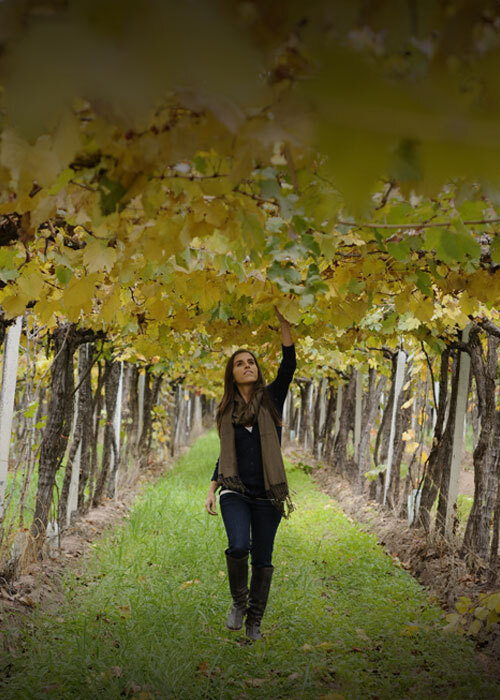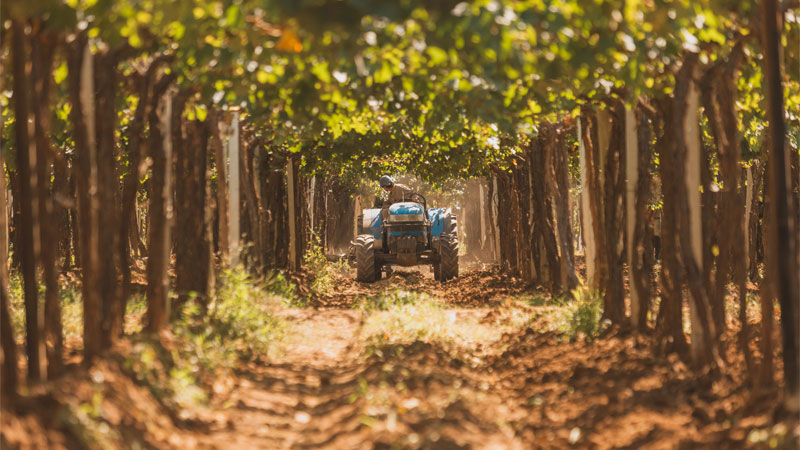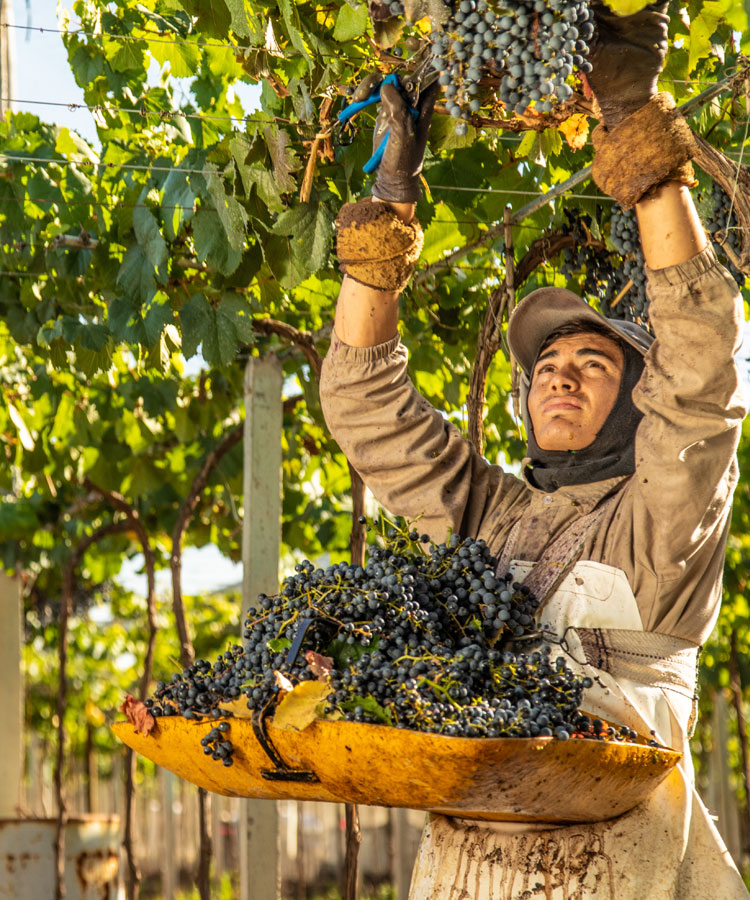
Think of Malbec and your mind probably immediately goes to Mendoza, Argentina, the region now synonymous with wines known for their dark blackberry flavors, smooth mouthfeel and food-friendly tannins.
But while Argentina is inextricably linked to Malbec, it has never been so with organic and sustainable winemaking.
That’s changing, says Julia Zuccardi, as her family’s winery, Bodega Santa Julia, has been leading the charge — in both the vineyard and the cellar — for almost 40 years, while never compromising the quality of its wines, including its highly regarded Reserva Mountain Red Blend and certified organic Malbec.
The belief that taking care of the environment is critical to winemaking has been in place for three generations — since Julia’s grandfather started the winery in 1963. All of the vineyards are farmed sustainably with over 750 acres between the Santa Rosa and Maipu regions now certified organic, with the first vineyard receiving organic certification in 2001. Julia and her family are currently working on certification for their vineyards in the Uco Valley.
In the vineyards, the team works with natural fertilizers, including worm castings, and, because irrigation is so crucial in Mendoza, Bodega Santa Julia is currently exploring ways to make that system more efficient.
To conserve energy in the winery, Bodega Santa Julia has installed a solar park with 20,000 panels and constructed an effluent treatment plant to reduce water consumption. It also uses recycled fuels for its wine-tank cooling technology. Recently, it released a line of canned wines, as aluminum is more easily recycled than glass bottles, and more environmentally friendly in terms of carbon footprint, due to weight.
But the Zuccardi family’s commitment to sustainability extends beyond the usual conversation about microorganisms and renewable energy. “Being sustainable not only applies to taking care of the soil but also to the people that we work with and the community we are a part of,” says Julia. “That is, for me, the most rewarding part of our job.”

An unavoidable truth is that Argentina does not have a great track record when it comes to fair treatment of laborers, particularly agricultural workers. And today, the country’s economic crisis has made it so that salaries are abysmally low, which means that many cannot afford basics such as medical insurance. Julia says this is one of the biggest issues in the Argentine wine industry and it is something her family has been addressing head-on, in several ways, for many years.
To start, the Zuccardis assessed their entire operation to make sure they were doing everything from paying fair wages to ensuring equality between men and women. Because of these efforts, in 2001, Bodega Santa Julia was awarded the first certification from Fair For Life, a non-profit regulated by FairTrade International that fights against everything from unsafe working conditions to child labor.
The winery has also developed programs to help its workers and their families, including daycare centers that look after 67 children, including newborns, and adult education scholarships, which are currently helping 57 employees finish their secondary studies. The company also established sewing workshops for employees’ wives and then commissions the women to make uniforms for the winery. The women also use this trade to work on projects for other companies.
On a larger scale, Julia’s father and current director of Bodega Santa Julia, José Alberto Zuccardi, is the sitting director of the Argentinian Viticulture Corporation, which is working to institute widespread changes to the country’s wine industry.

Julia notes that the winery’s ability to put these initiatives into effect is directly related to the success of Bodega Santa Julia wines — and Malbec as a whole. This has funneled the necessary capital into its operation to take production, experimentation, and experience to the next level. “We owe everything to Malbec,” she said. “It’s what put us on the consumer’s radar. When someone wants to drink Malbec, without a doubt, they know that the best is Argentinian. We are more than grateful for that.”
And Bodega Santa Julia’s wines are a loud voice in the sea of Malbec, utilizing the best winemaking techniques it can for its different terroirs and wine categories and understanding that sometimes doing less will reap the most benefit.
For example, with its organic Malbec, in an effort to allow the fruit to prevail, winemakers forgo oak altogether, vinifying the 100 percent organically grown grapes in stainless steel tanks to make an approachable red wine — all figs, plums, and fresh raspberry, in the best way — that retails for less than $13.
Its Mountain Red, from the terroir-oriented Reserva line, takes a more traditional approach. The Malbec and Cabernet Franc grapes are sourced from mountain vineyards in the Uco Valley and partially aged in French oak for 10 months, bringing out all the iconic aromas and flavors you’d expect: blueberries, violets, and cherries on the nose with dark fruit, spice, and velvety tannins on the palate. The wine is one of Santa Julia’s best sellers — and was named to Vinepair’s list of Top 20 Red Blends.
Santa Julia wines are available nationally at your local grocery Whole Foods Market, Yard House restaurants, and online with Wine Access.
This article is sponsored by Bodega Santa Julia. Want to learn more about Julia Zuccardi, the Zuccardi family, and Santa Julia winery? Check out the VinePair’s Great Drinks Experience video here!
